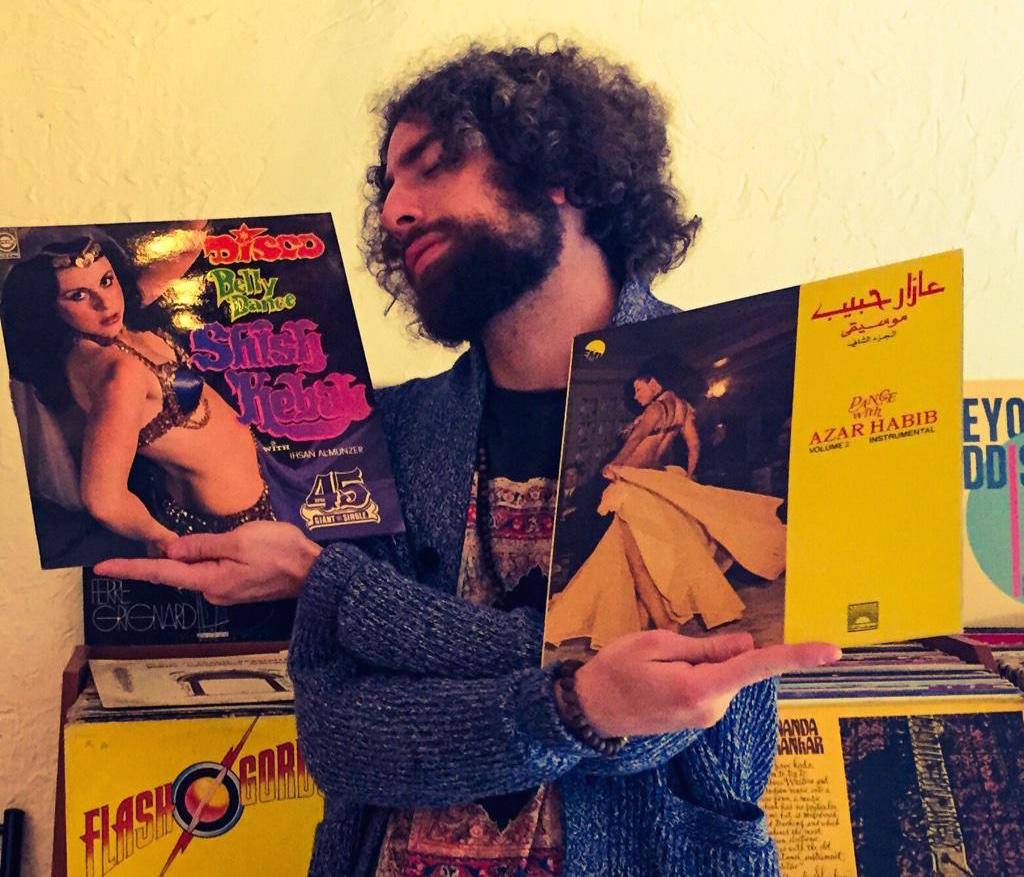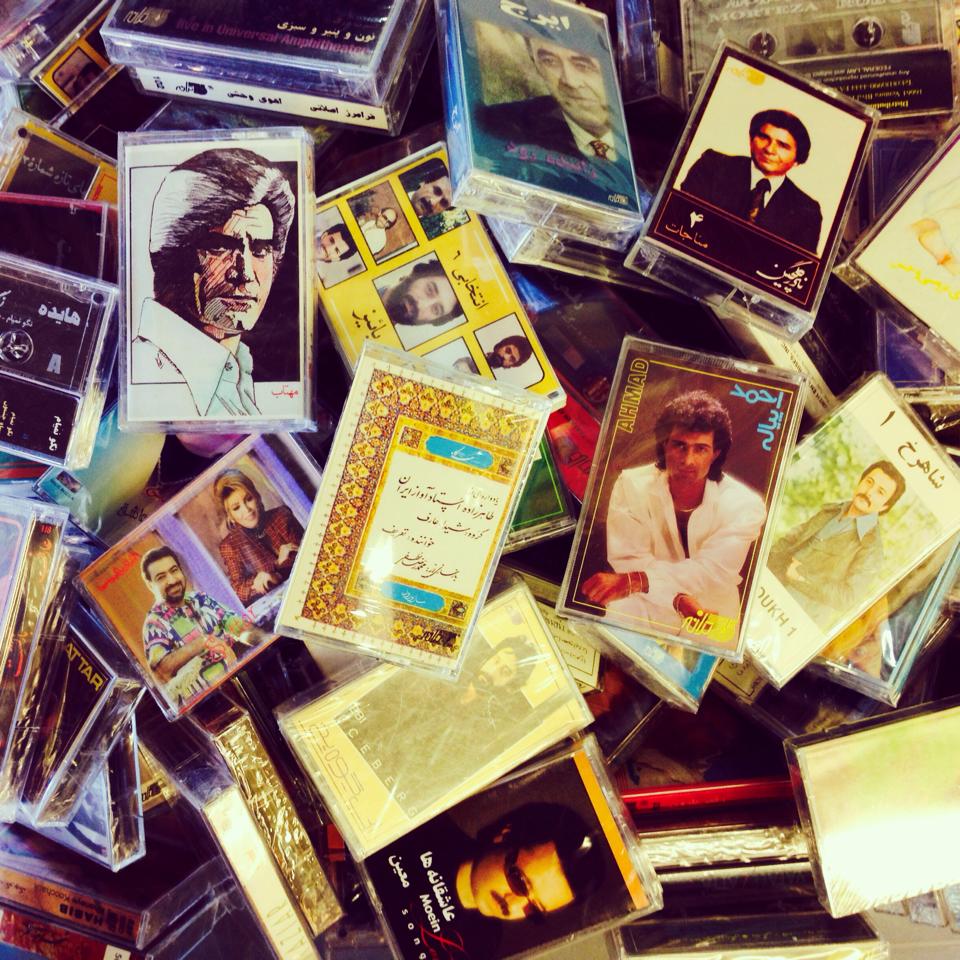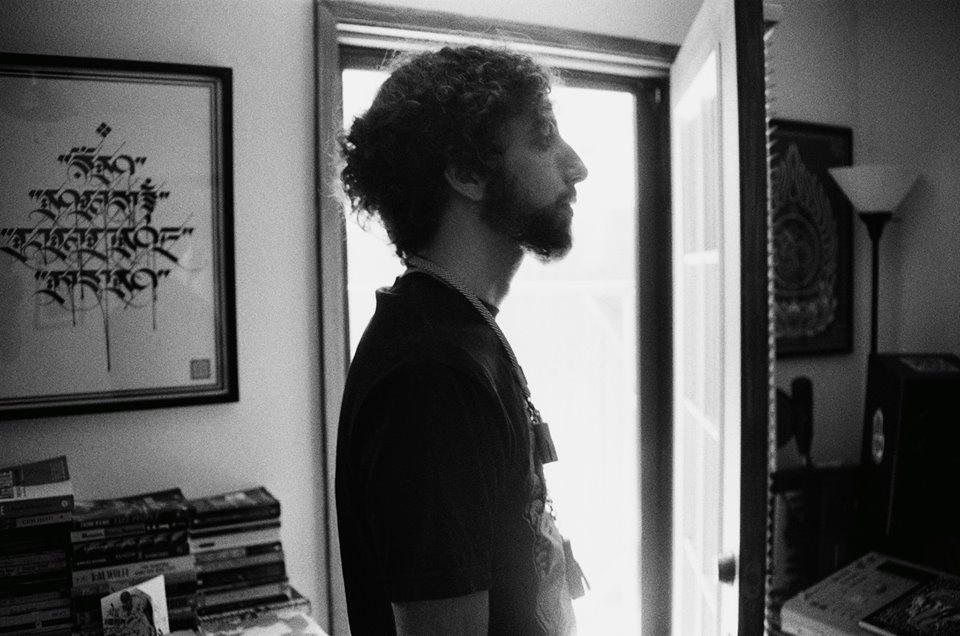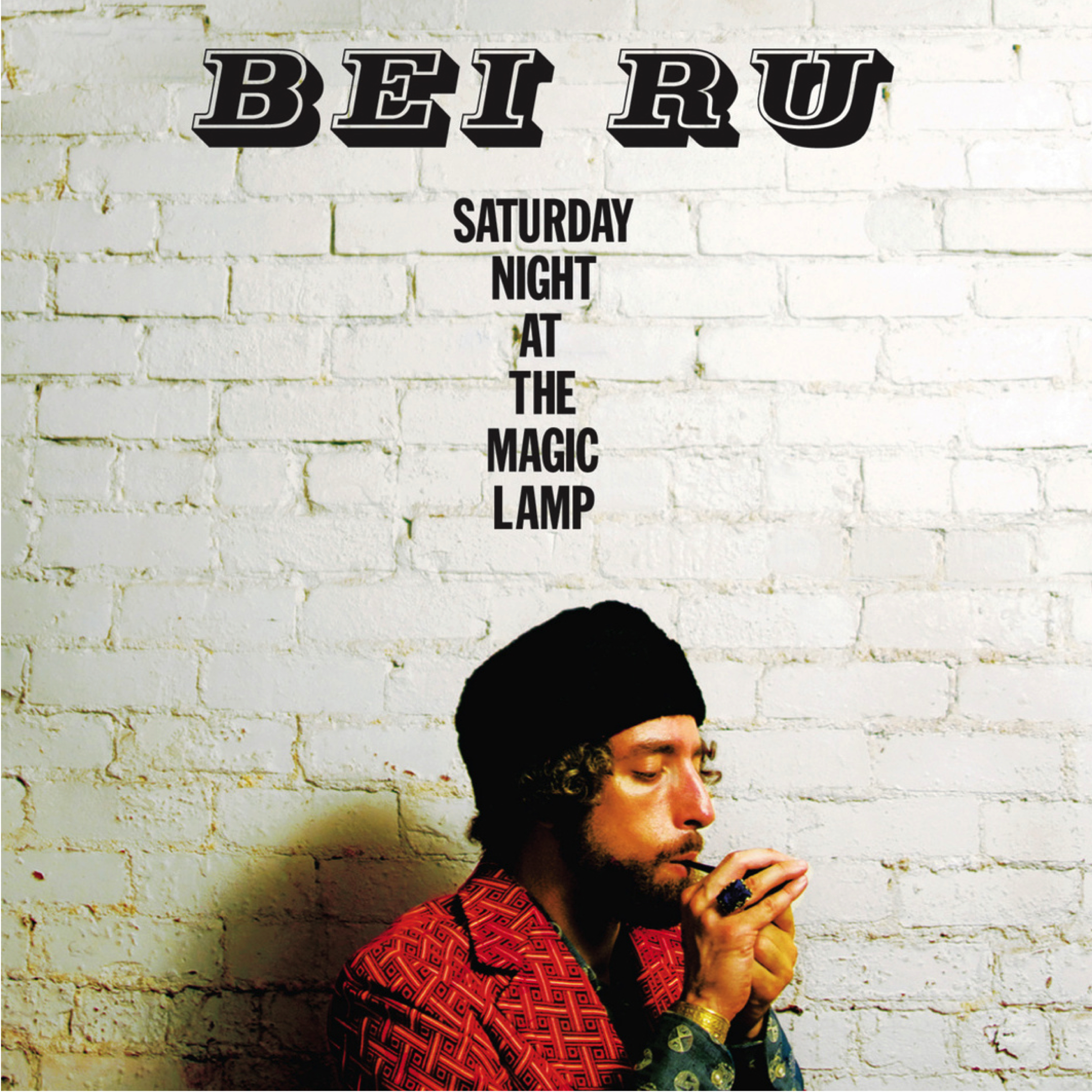Doumbeks, guitars, and breaks, oh my. The music of LA’s Bei Ru
Looking like he’s jumped straight out of a Parajanov flick, the young producer, composer, and DJ with a flair for fashion, bling, and beards, known to his fans as Bei Ru, is a feast for both the eyes and ears. Based in Los Angeles, he released his first album, Little Armenia in 2010 to critical acclaim, and last November, came back with a second serving, Saturday Night at the Magic Lamp, a sumptuous medley of electronic sounds, Middle Eastern breaks and rhythms, and a whole lotta Armenian soul. He’s also ventured into the world of film scores, having produced several tracks for the soon-to-be-cult classic Iranian vampire film, A Girl Walks Home Alone at Night, and, having returned from a successful Middle Eastern tour, plans on rocking in the motherland later this year.
I recently chatted with Bei Ru about his influences, the new album, and where to get some good ol’ fashioned gata in Little Armenia - among, of course, other things.
Are you going to tell us your real name?
Baruir Panossian.
Your first album, Little Armenia, exclusively revolved around, well, Armenia-inspired music. Your new album is a bit different; it still retains the unavoidable Armenian influences, yet isn’t limited to them. There are Arabesk rhythms, Mediterranean melodies, and even traces of swing. What were some of your inspirations?
I grew up listening to old Armenian records that my parents would always be playing – from traditional stuff to classical and pop – so that’s always been an influence. My parents both grew up in Lebanon, so Arabic songs and rhythms were always present, too. Music from the Middle East has certain qualities, regardless of the country, so that’s always been embedded in my own sound. The rhythms and melodies from that region have always had a sort of hypnotic feel to them, so they’re something I grew up being mesmerised by.
When I grew older and got into hip-hop and electronic music, I thought it would be cool to incorporate those [Middle Eastern] sounds into those genres. The first pieces of equipment I got were a Casio keyboard, and an Ensoniq EPS 16+ analog sampler. I started sampling bits and pieces of songs from my parents’ record collection, and added my own touch to them. Pretty soon, I started to discover other records from the Middle East, particularly Armenian ones. A lot of the records I’d randomly find in stores in LA were really obscure – to the point where most people didn’t even know or remember them.

Bei Ru - a man who has his shish kebab, and eats it, too
It eventually became a sort of obsession to find more and more of those types of records and try to breathe new life into them. I eventually travelled to Armenia, Lebanon, and Syria, where I found [other] records, and eventually started to work around the concept of vintage tunes with a futuristic twist to them. Saturday Night at the Magic Lamp is an attempt to create a soundtrack to a club that’s from some strange, exotic, and otherworldly place that doesn’t have a particular timeframe to it. I tried to give it a timeless feel within that concept.
I’m familiar with the slew of Persian pop stars in Tehrangeles, but must admit that I don’t know as much about the music scene in Little Armenia. What’s it like?
Little Armenia was the first city in LA that Armenians flocked to in the 60s and 70s. It’s full of random mom and pop shops, like antique and rug stores, bakeries, and restaurants. It also happened to be the first place where record stores specialising in Armenian music first opened, so there’s a lot of history there. A famous record store in Little Armenia is Parseghian Records, which has been around since the 70s.
There’s quite an eclectic mix of instruments on both of your albums: ouds, bağlamas, bouzoukis, pianos, and – of course – dirty electric guitars. Do you do any of the instrumentation yourself?
I play keyboards and some guitar and bass. I studied piano for about 10 years starting at the age of six, but I mostly just play by ear. On Saturday Night at the Magic Lamp, I reached out to some really incredible musicians from LA that I knew, so there are some great electric bass, electric guitar, electric oud, keyboard, and piano parts that they contributed. It really helped shaped the sound by adding that live element to it.
What are some of your favourite tracks on the album? I can’t get Hey Jan out of my head.
They always change, but at the moment, my favourites are Sweet Temptress, Pomegranate A.M., and Planets.
Saturday Night at the Magic Lamp is an attempt to create a soundtrack to a club that’s from some strange, exotic, and otherworldly place that doesn’t have a particular timeframe to it
What sort of venues are you playing right now, and who are your main audiences?
I’ve been playing all over LA at various clubs and venues. I played a show a few weeks ago at Low End Theory, which was incredible. The audiences in general tend to be all over the place. The music doesn’t really fit into any specific genre, so it’s cool to have that reflect in the audiences.
Will you be travelling outside the US? Any shows scheduled for Armenia?
I just got back from a tour of the Middle East, where I performed in Kuwait, Lebanon, and Jordan. I collaborated with some local musicians in Jordan who played electric guitar and bass, oud, and percussion, so that was a really special show. The crowds out there are incredible, and it was great to have a chance to travel to those areas and spread the music. I haven’t performed in Armenia yet, but definitely plan to do so later this year.
What’s a typical week in Little Armenia like for you? Where do you eat, play, hang out, etc.? And where can we get some proper gata?
I don’t spend too much time in Little Armenia, but I always love going to the bakeries and restaurants when I’m out there. The best gata is definitely at the mom and pop grocery stores. Falafel Arax is a legendary spot, known for its falafel and various traditional Armenian sandwiches. Panos Pastry is a famous bakery that has also been around since the 70s. They’ve got that good gata.

Treasures from Tehran (and Tehrangeles)
What are you listening to these days?
What I listen to is always all over the place. Lately, I’ve been listening to a lot of electronic music from the 70s. And always some jazz. I got some really rad CDs from Jordan that have traditional music played on synths. Been loving that lately. I’ve also really been digging the last Ariel Pink album, and the new D’Angelo one.
Some of your songs were recently featured in the Iranian vampire flick, A Girl Walks Home Alone at Night. What was the experience like? Which songs are featured on the soundtrack?
Working on A Girl Walks Home Alone at Night was an incredible experience. The film itself is a really beautiful and inspiring piece of work, so having the chance to contribute to the score was awesome. The songs I produced are The Bread Thief, The Veil, and Remember That Day. I was fortunate enough to have the opportunity to see it premiere at the Sundance Film Festival last year, and got goosebumps when I first saw the scenes the songs were featured in on screen. The combination of music and visuals is a beautiful art form in itself, and I was honoured to have had the opportunity to be part of such a rad film.

In the studio (courtesy Natalie Ohanyan)
What do you have planned for the near future? More pomegranates and guitars, please.
I’ve been getting more and more into scoring music for films, so that’s definitely something that I’d like to further pursue. I’m always working on expanding my own sound and trying to come up with melodies and rhythms that keep me inspired. I get bored really fast, so I always try and come up with new approaches when it comes to music. Speaking of pomegranates – there were numerous places in Amman that had fresh pomegranate juice at the marketplace. I’ve been looking for some spots in LA, but no luck yet!

